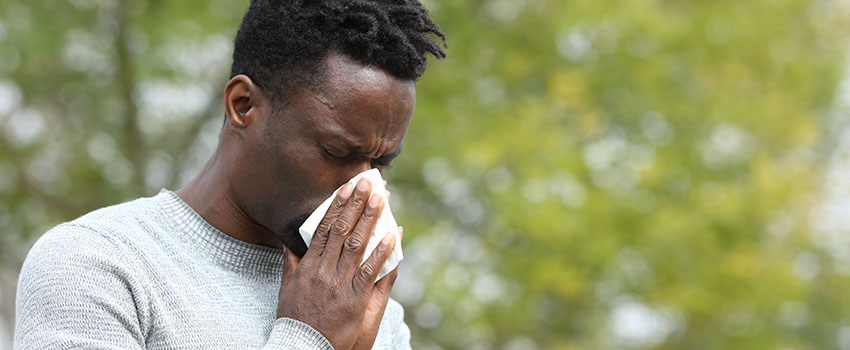
Allergies affect millions of Americans every year. While some experience them in the fall and winter, most experience them during the spring, when trees, grasses, flowers and weeds begin to bloom at a rapid pace.
It’s tough to enjoy the beauty of spring when you’re constantly sneezing and sniffling all the time, so is there anything that can be done to quell those symptoms?
Yes, there is, and our AFC Urgent Care Ooltewah team explains below.
What Causes Springtime Allergies?
When the immune system encounters something in the air that it perceives as a threat, seasonal allergies develop. It then creates histamines to defend your body, causing inflammation or congestion in your nose, throat and chest.
Seasonal allergies that occur in the spring are most commonly caused by pollen. If pollen levels are high in your area, you’re more likely to experience more allergy symptoms.
Common Seasonal Allergy Symptoms
- Itchy, watery or red eyes
- Circles under eyes
- Itchy mouth, nose or throat
- Runny or stuffy nose
- Drainage from the nose down the back of the throat (postnasal drip)
- Temporary loss of smell
- Headache
- Sneezing
What Can I Do to Reduce My Allergy Symptoms?
There are two phases of treatment that work to reduce allergy symptoms: avoidance and medication. If pollen is typically what causes all of your allergy symptoms during the spring, reduce your exposure to it. You can do this by staying indoors when pollen counts are high, running your AC, removing your clothing and bathing soon after coming inside after spending time outdoors.
Secondly, taking over-the-counter antihistamines and nose sprays can reduce your symptoms. We’ve listed a few more helpful treatments below!
Ways to Reduce Spring Allergy Symptoms
- If you are dealing with lots of congestion, consider rinsing your sinuses with saline solution. This will flush out mucus and allergens from your nose.
- Keep indoor air clean. You can do this by using a dehumidifier and vacuuming regularly. This will reduce the amount of harmful allergens that make their way inside the home. Running your air-conditioner also helps.
- Know when to take your allergy medicines. If you typically experience bad allergies around the same time each year, start taking your nose sprays or OTC antihistamines about two weeks before allergy season starts, then keep taking them regularly throughout your allergy season.
If you need further allergy relief, don’t hesitate to visit our AFC Urgent Care Ooltewah team today! We’re here for you now and always.


